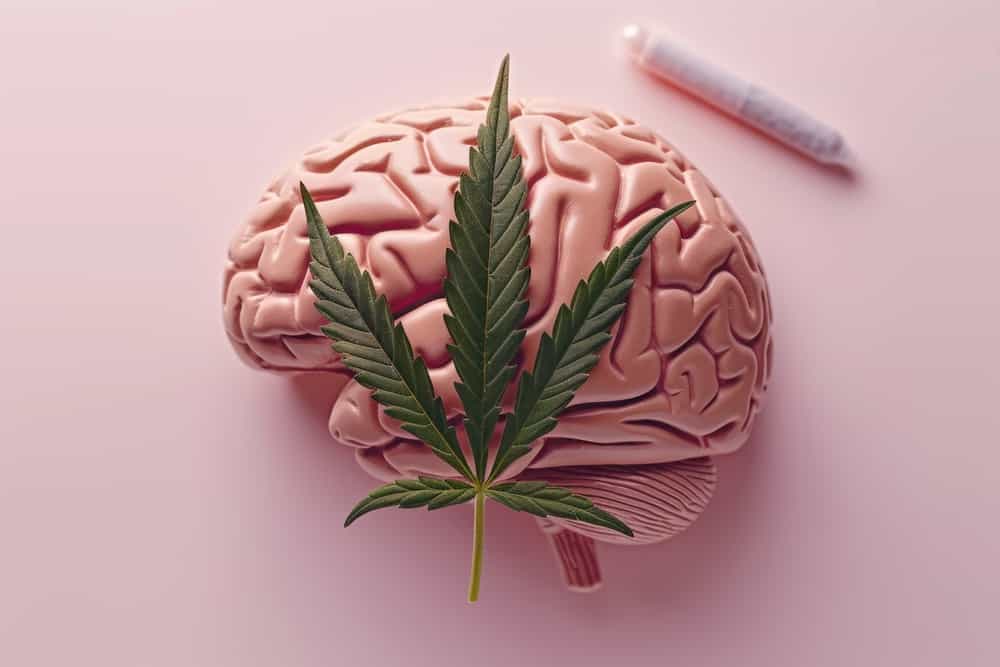
The THC in Medical Cannabis can induce feelings of intoxication in patients. Such feelings are expected. Likewise, Medical Cannabis patients can, and do, experience strange or enhanced thoughts while medicated. Such thoughts come with the territory. Know that you are not alone in experiencing them.
If you have ever wondered why your thought patterns may seem strange, science may have provided the answer. Multiple studies looking at brain activity and blood flow have reached some interesting conclusions where cannabis is concerned. We found a great article from Cannigma discussing the research in detail; we summarize it below.
Blood flow is critical to nearly every system in the human body. Increasing blood flow changes everything – at least in the moment. Consider blood flow to your skin on hot days. The things your body does on hot days are remarkably different as compared to cold days.
In hot weather, it is unhealthy for your body to retain heat. So to get rid of some of it, blood flow to the skin is increased. This helps the skin eliminate some of the excess heat through perspiration. On the other hand, blood flow to the skin decreases in cold temperatures. The body naturally withdraws blood from the skin in order to conserve heat internally.
This basic illustration shows just how important blood flow is to one particular organ. As you might have guessed, it is as important to the brain as it is to the skin. So just as with the skin, increasing or reducing blood flow to the brain impacts what the brain does.
The previously mentioned research seems to suggest that increasing blood flow to the brain impacts several key areas of the brain, all of which contribute to thought patterns. The largest increase in blood flow due to THC intake occurs in the frontal lobe. The brain’s frontal lobe is responsible for a whole host of functions, including reasoning, thought organization, sensory data processing, and cognition.
Increasing blood flow to the frontal lobe can enhance its functional activities. Increased functional ability opens the brain to new thoughts and ideas that may seem strange to a person. That could be the case with you. When you use Medical Cannabis, you may find yourself thinking things you never would have thought under normal blood flow conditions.
THC consumption alsoincreases blood flow to the right hemisphere and the cingulate cortex, thusincreases their functional states as well. You may wish to refer to the Cannigma article for more on what happens when these regions are more active.
All in all, those strange thoughts you might have when using Medical Cannabis are most likely the normal result of increased blood flow to the brain. They are likely nothing to be afraid of. However, you should not hesitate to reach out to your medical provider regarding any concerns you do have about your thought patterns.
When it comes to those strange thoughts Medical Cannabis users sometimes have, it all boils down to blood flow. Medical Cannabis increases blood flow to key areas of the brain. In turn, the brain is open to all sorts of thoughts that are otherwise suppressed. We hope that you enjoy your heightened mental state!
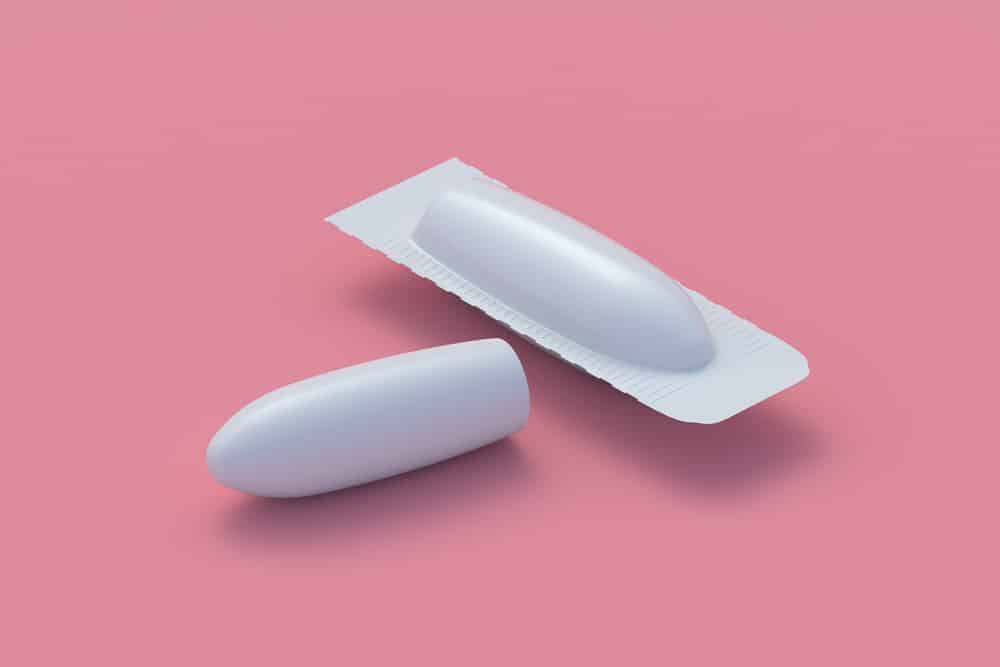
The most common methods of consuming a Medical Cannabis include inhalation, oral induction (edibles and tinctures), and topical creams and lotions. Medical providers have traditionally stayed away from cannabis suppositories under the assumption that they don’t offer enough bioavailability. But new research is challenging that thinking.
Bioavailability, which is essentially the ability of the body to absorb certain substances, impacts whether medications are useful. A medication with poor bioavailability does not get absorbed into the system in high enough concentrations to make a difference. On the other hand, a substance with high bioavailability is readily absorbed.
According to the Cannigma’s Elana Kirsch and Codi Peterson, studies from back in the 1980s and ’90s suggested that cannabinoids had very low bioavailability when introduced as suppositories. As such, not a lot of attention has been given to suppositories over the last four decades.
Researchers have once again taken up the bioavailability question in relation to cannabis suppositories. One of the more recently published studies compared suppositories against vaporized products and edibles in the form of tablets. What the researchers found directly contradicts older studies.
Their small-scale study enrolled just 12 volunteers who were given eight different products to try. Those products included sublingual tablets, vaporizer products, and suppositories. Blood samples were collected from each volunteer and tested subsequent to being medicated.
As expected, the highest rates of bioavailability were observed among the vaporizer products. The study confirms that inhaling cannabinoids is the fastest and most effective way to utilize Medical Cannabis. But surprisingly, the researchers also discovered the bioavailability between the sublingual tablets and suppositories was comparable. In other words, the suppositories worked about as well as the tablets.
Intrigued by this research, the Cannigma team decided to conduct their own survey-based research. They got together with MoreBetter to test a particular CBD suppository made with a full extract cannabis oil. They enrolled 100 women over an 8-week test period, focusing mainly on whether the suppositories would have any impact on menstrual symptoms.
It turns out that the suppositories improved patient pain scores by 55%. According to the Cannigma:
Even though the researchers enrolled 100 participants in contrast to the previous study’s 12, the results are considered unscientific due to a lack of clinical controls. Still, the results are pretty compelling. They provide a foundation for the support of cannabis suppositories for certain conditions.
A key takeaway here is that offering patients different options for delivery methods is a good thing. In some cases, vaping products are ideal because they deliver a maximum amount of medication in the quickest time. Vaping may be the best choice for a person experiencing chronic pain on a daily basis.
On the other hand, edibles can be a very good choice for someone looking to take the edge from their symptoms while they are at work. Edibles work more slowly, but they offer more consistent relief over longer periods of time.
This preliminary research indicates that suppositories also have a place at the Medical Cannabis table. Perhaps it is time that we start giving them a bit more attention. Who knows? Some patients may try suppositories and ultimately decide they are the best option of all.
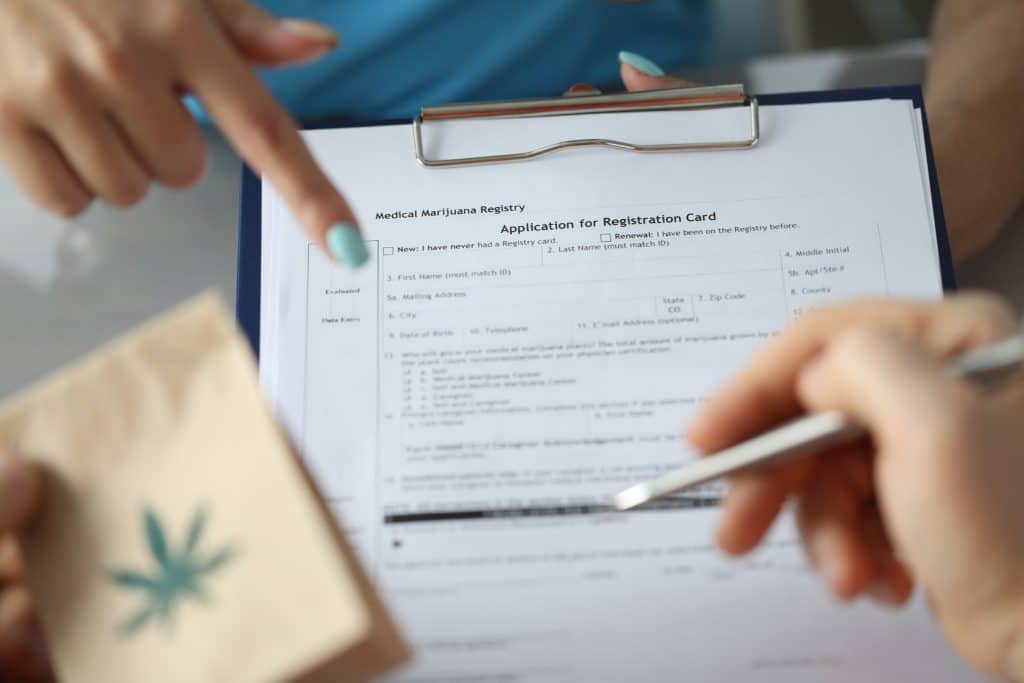
The state of Utah issues five types of Medical Cannabis cards based on the needs of each applicant. One of them is the Caregiver card. Are you familiar with it? And if so, do you actually have one? Patient cards are by far the most popular type of card in Utah, yet the Caregiver card is out there as another option.
The Caregiver card is designed for a specific purpose. We will discuss that purpose in the following paragraphs. If you know someone who uses Medical Cannabis but has trouble getting out to a pharmacy to view products and speak with a Pharmacy Medical Provider (PMP), you might be able to help out by obtaining a Caregiver card.
A person with a Utah Patient card possesses a type of Medical Cannabis Card that allows him to purchase medications for his own use. Those medications cannot be shared with other patients. On the other hand, a Caregiver card is designed explicitly for the purpose of purchasing cannabis medications on behalf of someone else.
As a caregiver, you might be providing a certain level of care for someone else. Think of a homebound person who can’t get out of the house. Maybe that person needs help with certain daily activities. He certainly can’t run down to the pharmacy to get his medications. However, he can send you. With a Utah Caregiver card, you can visit a Medical Cannabis pharmacy to pick up his medications for him.
Now that you grasp the basic concept of the Caregiver card, the next thing to know is that both you and the person you are providing care for need cards. You would get the Caregiver card while the other person would obtain a Patient card. Without both cards, this doesn’t work.
Your friend would apply for a standard Medical Cannabis Card using the state’s electronic verification system (EVS). Your friend’s medical provider would conduct an evaluation and then complete that portion of the application. Your friend would finish the application, submit it, and pay the fee. Here’s the kicker: he would also have to name you as a caregiver on his application. You could be added to the application after the fact.
Likewise, you would have to log on to the EVS to complete the Caregivers application. On the initial screen following log on, you would choose that option. Then you would fill out the requested information, submit your application, and pay your fee. Assuming you were approved, you would get your Caregiver card via email.
The most important thing about getting a Caregiver card is understanding that the Medical Cannabis products you purchase are not for your consumption. You cannot use them under any circumstances. A Caregiver card only gives you the legal right to purchase Medical Cannabis on behalf of a valid Patient card holder.
The good news is that you can obtain your own Patient card as well. As long as you have been diagnosed with a qualifying condition and your medical provider agrees that Medical Cannabis is an appropriate treatment for you, you can get your card and then purchase medications for yourself.
Utah’s Caregiver card is an important tool for patients who need Medical Cannabis but are unable to procure it for themselves. It allows a friend or relative to purchase medicines on the person’s behalf. If you know someone who uses Medical Cannabis and has trouble obtaining it, you might be able to help with a Caregiver card.
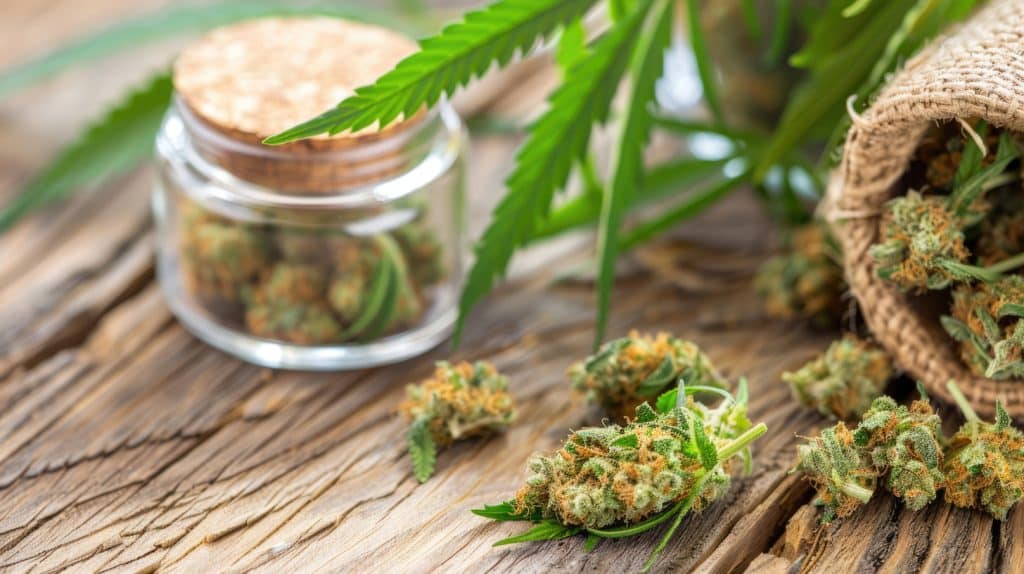
If you have been following Medical Cannabis in Utah since Proposition 2 legalized it in the Beehive State, you know that state lawmakers vastly underestimated the total number of patients who would apply for Medical Cannabis Cards. Given a recent report showing a dramatic rise in Medical Cannabis consumption nationwide, we are forced to wonder if lawmakers in other states made similar mistakes.
The report in question shows an unbelievable 610% increase in Medical Cannabis consumption since 2016. That is incredible no matter how you look at it. Most industries would give an arm and a leg to see 30-40% growth. A rate of 610% is pretty much unheard of.
The report comes from the federal government following joint research by the Centers for Disease Control and Prevention (CDC) and the Department of Veterans Affairs (VA), in concert with the University of Michigan. Researchers looked at data from 39 jurisdictions including 38 states and the District of Columbia.
An estimated 678,000 people used state-legal Medical Cannabis in 2016. By 2020, the number had grown to an estimated 3+ million. More than 4 million Medical Cannabis Card holders were reported in 2023.
Here in Utah, the latest monthly report shows more than 83,000 patients with active Medical Cannabis Cards. Way back in 2019, lawmakers were estimating fewer than 10,000 total patients. We have certainly blown by that number.
So what has led to such a remarkable increase in Medical Cannabis use over the last eight years? One of the things CDC and VA researchers point to is cultural acceptance. As public opinion about Medical Cannabis has shifted demonstrably to the positive side, there is less of a stigma associated with using cannabis-derived medications.
Remove some of that stigma and people living in states with legalized Medical Cannabis are more likely to ask their medical providers about it. However, we think there is more to it than that. Cultural acceptance certainly has played a role, but we believe a more important factor has been education.
As an organization that operates multiple clinics throughout the state of Utah, we work with a lot of patients looking for help with chronic pain, PTSD, medication management, and other issues. One thing we can tell you is that there are still a lot of people who do not know about Medical Cannabis and its role in treating certain conditions. We do our best to educate.
From our perspective, it seems as though education is a never-ending project. And yet, the more Utah residents learn about Medical Cannabis, the larger our program becomes. Thousands of people are being added to the roles of active Medical Cannabis Card holders every month. We firmly believe education is driving increased enrollment.
The latest numbers from the state show that chronic pain is still by far the main condition for which Medical Cannabis is utilized in our state. Among the approximately 83k card holders are more than 65k chronic pain patients. PTSD is the second most cited condition with just over 17k patients reporting it on their applications. Nausea, cancer, and epilepsy round out the top five.
We are confident saying that Medical Cannabis is not going away at this point. It has become mainstream medicine despite ongoing conflicts between federal and state law. If you are still not sure, ask yourself how many other industries have grown by 610% over the last eight years. We don’t know of very many that even come close.

Utah’s list of qualifying conditions for Medical Cannabis has been modified a couple of times over the last few years. The most recent modification saw the addition of acute pain for which a prescription narcotic would normally be offered. Will our list be expanded again? And if so, will it include female orgasmic disorder (FOD)?
The team here at Utah Marijuana offers this question in all candidness. FOD is a recognized condition and one that four states are now looking at as a possible addition to their qualifying conditions lists. Those states are Ohio, New Mexico, Illinois, and Connecticut.
We would like to point out that Ohio is also considering adding autism spectrum disorder to its list. Doing so would greatly expand access to Medical Cannabis in the Buckeye State. Here at home though, getting FOD on our qualifying conditions list isn’t even on the radar right now.
Sometimes referred to as orgasmic dysfunction, FOD is a sexual health problem that manifests itself primarily in difficulty achieving orgasm. However, some FOD patients report having orgasms that are less intense or less frequent than normal. FOD has been linked to a lack of sexual satisfaction among females in romantic relationships.
FOD can be either primary or secondary. Primary FOD is diagnosed when a woman has never been able to achieve orgasm. Secondary FOD is diagnosed when a woman who previously had no difficulty achieving orgasm now struggles to do so.
A quick internet search reveals that a number of studies dating back to the 1970s showed that cannabis can improve orgasmic response in women. More recently, a study published in the Journal of Sexual Medicine seems to demonstrate the very same thing.
More than half of the study’s 387 participants reported experiencing difficulty with orgasms. When using cannabis before sex, 72.8% reported increased orgasm frequency. In addition, 67% reported increased orgasm satisfaction while 71% said that achieving orgasm was easier.
The evidence in favour of Medical Cannabis as a FOD treatment seems pretty clear. But getting the condition added to a state’s qualifying conditions list might not be so easy. What is the big challenge? Medical necessity.
It is one thing to convince lawmakers that cancer patients deserve the option of using Medical Cannabis to relieve pain and nausea. Convincing them to okay Medical Cannabis for PTSD and chronic pain is comparatively easy since no one wants to see patients suffer from either condition. But it’s a lot harder to get them on board with adding sexual dysfunction. Medical necessity objections get in the way.
We will not go as far as to say that adding female orgasmic disorder (FOD) to Utah’s list will never happen. After all, no one thought our state would approve Medical Cannabis to begin with. Yet here we are. We will say that getting FOD on our list right now would probably be an uphill battle.
On a more positive note, Utah has a history of letting other states lead the way. We step back and wait to see what happens elsewhere. If things go well, we get on board. That could ultimately end up being the case with FOD.
Assuming that all four states currently entertaining the FOD question ultimately add it to their qualifying conditions lists, other states are sure to follow. Utah could be one of them. Who knows? A couple of years from now, we could be talking about seeing your medical provider for a Medical Cannabis recommendation to treat FOD. Anything is possible at this point.
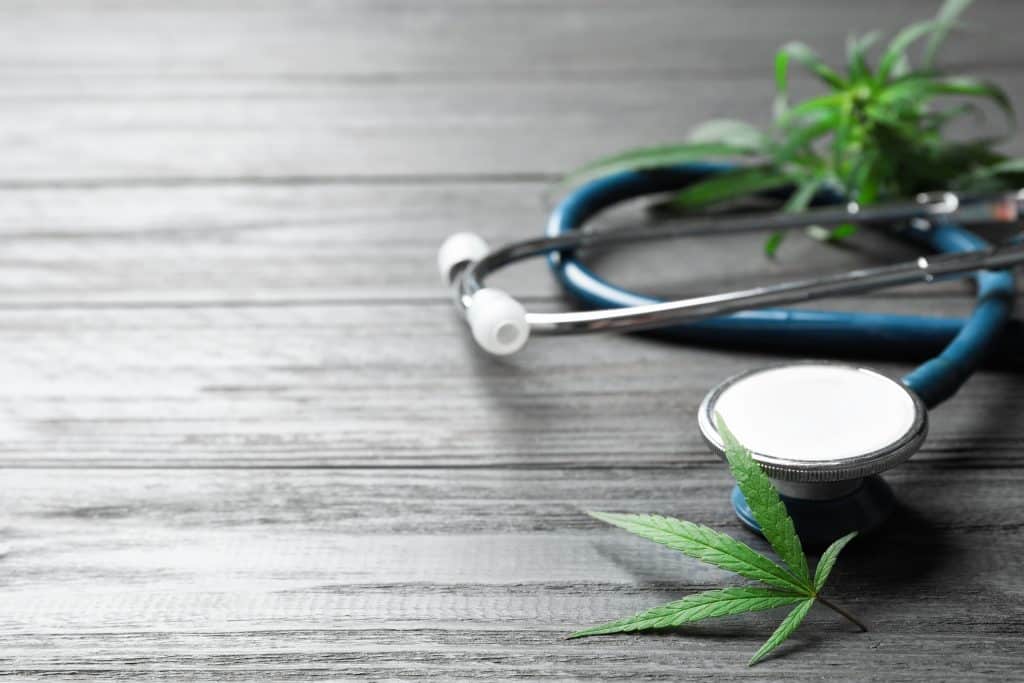
There is a well-known phenomenon in Western medicine known as the ‘biphasic response’. This response is normally associated with a negative reaction to prescription medication. But the word ‘biphasic’ simply means ‘having two phases‘. When we talk about biphasic response in Medical Cannabis, we are talking about something completely different.
We believe it is important that Medical Cannabis patients understand the biphasic nature of cannabis itself. While a biphasic response to a more traditional prescription medication could be cause for alarm, that is usually not the case in the Medical Cannabis realm.
Let us start with the normal definition of biphasic response with prescription medications. Nearly every prescription medication comes with side effects. In a biphasic response scenario, you would experience those side effects twice. The first experience would occur shortly after taking the medication. The second experience could occur much later – perhaps at 7-10 hours.
Allergic anaphylaxis is often associated with this sort of biphasic response. No doubt anaphylaxis is something to be concerned about. But not all biphasic responses associated with prescription medications are serious. In fact, most are not. They can be uncomfortable though.
As a reminder, the word ‘biphasic’ simply means ‘having two phases’. When we apply the term to Medical Cannabis, we are simply saying that a single cannabis product can have opposite effects on the same person. Those effects occur in two phases.
For example, a small amount of Medical Cannabis could go a long way toward relieving your anxiety. But adding a second dose to your first, in too short a time, could reverse the effect. You could actually feel more anxious. Similarly, a particular dose could help you sleep better. A higher dose could keep you awake by boosting your energy.
The Cannigma’s Emily Earlenbaugh, PhD explains the biphasic response by using alcohol as an example. Your first drink of the evening might leave you energized and sociable. You are happy to be hanging out with your friends. But a few drinks later, you begin to feel just the opposite. You are sad, lethargic, and really don’t feel like socializing. Similar effects can be experienced with Medical Cannabis.
So, how do you avoid the biphasic response? By working closely with your Qualified Medical Provider (QMP) and Pharmacy Medical Provider (PMP) to find the optimal dosage and delivery method.
We like to say that Medical Cannabis is more of a journey than a medicating event. Patients respond differently to varying products, ingredients, and doses. But that’s not all. A single patient’s response can actually change over time. What you started your Medical Cannabis journey with is likely not going to be the same a few years down the road.
One of the goals of working with your QMP and PMP is to find the optimal dosage. You want to consume enough Medical Cannabis to experience symptom relief without consuming more than necessary. Finding that optimal dosage can keep the biphasic response at bay.
Making it all work is open communication between you and your medical providers. We recommend tracking your Medical Cannabis consumption on a daily basis. We also recommend sharing the data with your medical providers.
If you are ever concerned about a biphasic response, please do not hesitate to talk things over with your QMP or PMP. Either of your medical providers is qualified to help you determine whether you should be concerned. Your medical provider can also help you adjust dosage and delivery to avoid additional biphasic responses in the future.
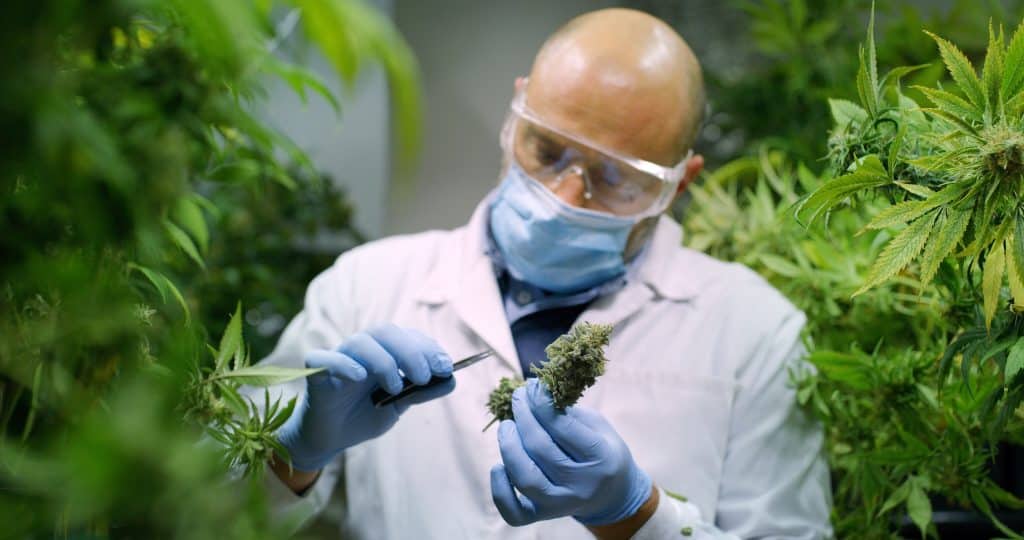
Most cannabinoid discussions within the Medical Cannabis sphere are related to CBD and THC. That is not surprising, given the fact that the Medical Cannabis movement was founded on leveraging THC for its medicinal benefits. But now we see an emerging interest in minor cannabinoids. Do they have a place at the Medical Cannabis table?
Often referred to as ‘alternative cannabinoids’, minor cannabinoids are basically any and all cannabinoids that are not CBD or THC. There are lots of them. Some estimates peg the total number of cannabinoids in a typical cannabis plant at somewhere around a hundred. That said, it is probably important to distinguish between natural and synthetic cannabinoids.
For the purposes of this post, let us define minor cannabinoids as those that are produced naturally. Alternative cannabinoids are synthetic, derived in a lab. Delta-8 and delta-10 THC are prime examples.
On the other hand, CBDA is a good example of a minor cannabinoid. CBDA is known formally as cannabidiolic acid. It is actually the precursor to CBD. In its natural state, a cannabis plant does not offer CBD per se. Rather, CBDA becomes CBD when it is decarboxylated.
Despite its nature as a CBD precursor, it would appear that CBDA might have some pain-relieving properties. We don’t know for sure because research has been so limited over the last several decades. But a small scale study involving 150 Cannigma readers may provide at least some evidence in support of CBDA for pain relief.
The study challenged participants to use a particular brand of CBDA topical lotion over a 4-week period. They were asked to report their experiences with pain relief, or the lack thereof. This particular brand is a favourite among athletes who swear by its ability to relieve pain. Now we are waiting for the study results to be released.
To tell you the truth, the team here at Utah Marijuana will not be surprised if research data confirms what athletes have been saying about the topical lotion all along. We already have access to a ton of anecdotal evidence from people who report that topical CBD lotions relieve all sorts of muscle and joint pain. Why wouldn’t the new study data back them up?
Full disclosure requires admitting that we still do not know the mechanisms behind how all of this might work. We do know that the human endocannabinoid system plays a predominant role in a large number of biological functions. We just aren’t sure of all the details.
We mention all of this to say that CBDA is considered a minor cannabinoid. If it does indeed provide pain relief for aching muscles and joints, then it is a legitimate part of the Medical Cannabis equation. Likewise for any other minor cannabinoids that could ultimately prove to offer medical benefits.
If you are a Medical Cannabis user in Utah, we would encourage you to not count anything out. Keep an open mind. Stay abreast of all the news and happenings within the Medical Cannabis community. There is more to learn every day, and things are moving at a brisk pace right now.
We feel like there is a lot more to minor cannabinoids than medical science knows. They could end up making big contributions to Medical Cannabis in the coming years. Count the Utah Marijuana team among those who wouldn’t be surprised to see CBDA medications on store shelves in the very near future. We have every reason to believe in minor cannabinoids as much as we believe in CBD and THC.
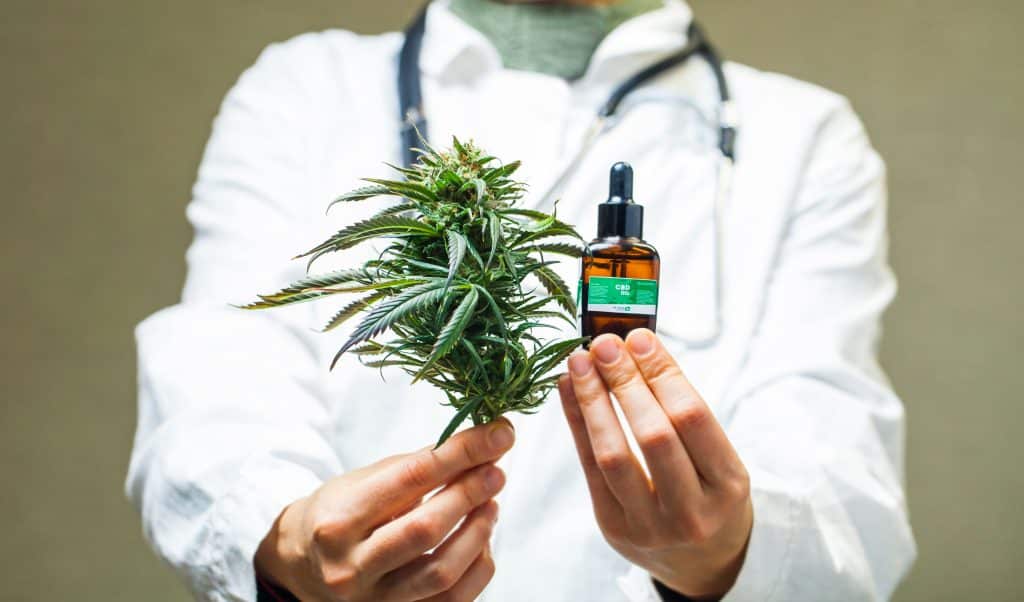
One of our goals at Utahmarijuana.org is to educate consumers about Medical Cannabis. To that end, we often say patients can “find more relief with less risk than harsher prescription medications.” Patients ultimately want to know more about harsher prescription drugs and why Medical Cannabis is referred to as less harsh.
When the medical community refers to a prescription medication as harsh, the reference is mainly to side effects. Every prescription medication comes with side effects of some sort. Most are mild and minimally uncomfortable. But some side effects are just the opposite. The more serious and uncomfortable a drug’s side effects are, the harsher that drug is said to be.
The harshness of a medication is relative. Making any kind of judgment about a particular medication requires looking at a number of different things. Primarily though, the drug in question needs to be compared against alternatives. Take ether, for example.
Ether has long been regarded as an effective anesthetic. It used to be the standard for surgical procedures. But ether’s downside is its potential for severe side effects, which include nausea, vomiting, and dizziness. It was not unusual for surgical patients to experience severe discomfort after ether anesthesia.
Today, we have more effective anesthetics that do not produce nearly the same uncomfortable side effects. So when you compare ether to these other medications, it is considered more harsh. Modern anesthetics are less harsh.
In order for us to confidently say that Medical Cannabis is less harsh than other drugs, we need to quantify what those other drugs are. An easy way to do this is to consider the number one complaint listed by Utah Medical Cannabis patients on their Med Card applications: pain.
Here at Utahmarijuana.org, our KindlyMD clinics have assisted untold numbers of chronic pain patients obtain their Med Cards. Many of those patients came to us after having tried more traditional treatments that included prescription narcotics. There is our baseline for discussing Medical Cannabis as less harsh.
Prescription narcotics have their side effects. Those side effects can be extremely harsh. What’s more, many patients report that the level of pain relief they experience from their prescription medications is not enough to warrant the side effects those medications produce. They report finding more relief with Medical Cannabis along with side effects that are more manageable and less uncomfortable.
We can take this one step further by comparing Medical Cannabis medications containing both THC and CBD. As you know, THC and CBD are naturally occurring cannabinoids found in cannabis plants. Both can be used as medicines to treat pain, nausea, seizures, and a long list of additional conditions.
In terms of side effects, THC is less harsh than prescription narcotics. CBD is less harsh than THC. But that’s not all. There is also the issue of addiction potential. Research has shown that THC has a lower potential for addiction and dependence than prescription narcotics. CBD presents little to no addiction risk at all – because it is not psychoactive. So when comparing all three, CBD is the least harsh.
Now you know what medical science is talking about when they refer to harsh medications. One of the reasons we believe so much in Medical Cannabis is that it has shown itself to be less harsh than other medications while still offering the relief patients are looking for. If you have been diagnosed with a qualifying condition and would like to know more, make an appointment to see a Utah QMP.
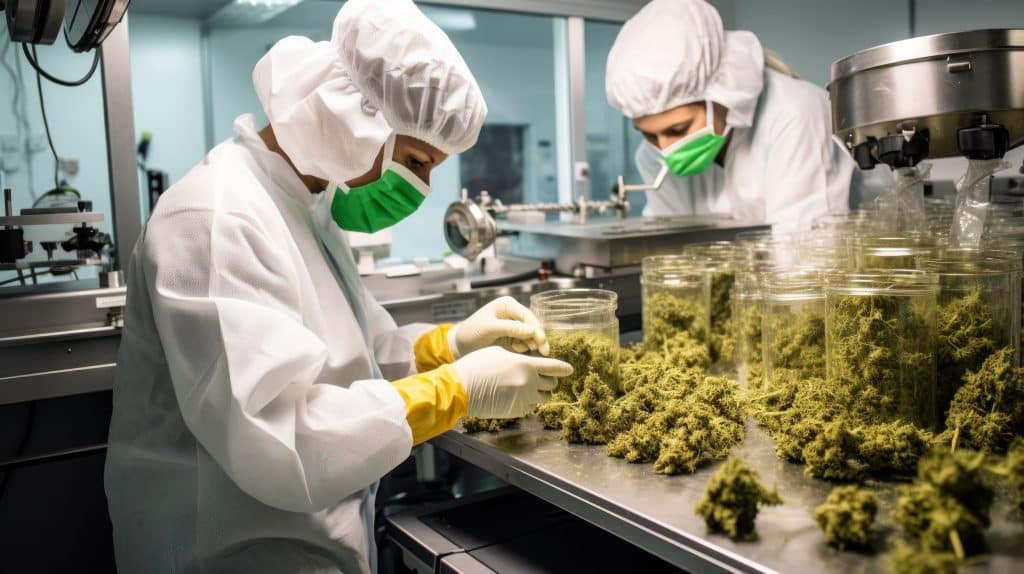
Whenever society promotes a substance with psychoactive effects, there are usually impairment questions. Concerns over cannabis users driving while impaired are the perfect example. However, a new study out of Australia seems to suggest that proper Medical Cannabis consumption does not impair driving.
Researchers define “proper’” consumption as consumption that adheres to prescription recommendations. Another way to put it is to say that a patient is following a medical provider’s recommendations to the letter. When that is the case, driving ability is not impaired – at least according to the researchers.
In order to get a better understanding of the impacts of Medical Cannabis on driving performance, researchers at Australia’s Swinburne University of Technology’s Centre for Human Psychopharmacology enrolled 40 study participants utilizing Medical Cannabis for a variety of chronic conditions.
Each participant’s driving abilities were assessed in a simulator both before and after taking a prescribed dose of cannabis medication. Additional post-consumption simulations were performed at 2.5 and 5 hours. Researchers did not observe any notable impairment at either follow-up period.
The 5-hour post-consumption assessment is of particular interest due to the longstanding belief that residual THC can affect driving abilities for hours after cannabis consumption. We now know that is not the case based on data from this study.
Full disclosure dictates that we acknowledge the small-scale nature of the study. A cohort of just forty study participants is not enough to unequivocally say that a Medical Cannabis patient would not be impaired by their medications. Still, the evidence is strong enough to be compelling and we hope to see the results of further research on this topic in the future.
We should also point out that the study is by no means an excuse to be careless with Medical Cannabis. Patients who use their medications according to medical provider recommendations should still pay close attention to how they feel before getting behind the wheel of a car.
As for the broader implications of the study, they point to the fact that driving while impaired is probably not something we have to worry about among Medical Cannabis patients who follow their provider’s instructions. Medical Cannabis appears to be no more impairing than an over-the-counter cough medicine.
If you are ever concerned that your medications are impairing your ability to drive, do not hesitate to talk to your medical provider. Whether it is the Qualified Medical Provider (QMP) such as Utah Marijuana who helped you get your card or the Pharmacy Medical Provider (PMP) at your Medical Cannabis pharmacy, trained medical professionals are the most qualified to answer your questions and offer advice.
The same is true for any other concerns you might have. Maybe you feel like your current medication isn’t working well enough. Talk to your PMP about it. Have a discussion if you don’t like the way your medication makes you feel.
Remember that using Medical Cannabis is a journey – it takes time to figure out the ideal doses, delivery methods, and products for any given patient. A willingness to work with your QMP and PMP can help you get there faster.
As for the Australian study, we can sum up our thoughts in a simple statement: always approach driving cautiously. You can never be too safe about taking to the road while medicated. Impairment is not likely to be a problem if you use Medical Cannabis according to your provider’s advice. Still, you don’t need to take any chances.